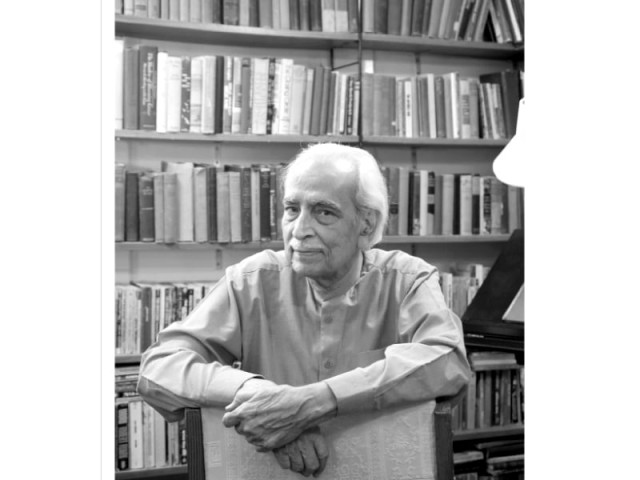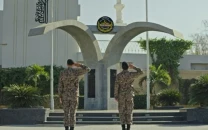Lutfullah Khan, master archivist of the subcontinent’s music, passes away at 95
The radio presenter was so engrossed with radio work that he barely bothered with Partition.

Archivist, photographer, radio jockey and one of the coolest people I ever met, Lutfullah Khan, passed away on Saturday, March 3 at the age of 95.
The first time I met him was in the summer of 2008. He was 91 and I was 19. I had gone over to his house to interview him for The Citizens Archive of Pakistan. I had been told that he was very, very important.
Fortunately, we hit it off immediately. I told him how everyone at the office was gushing over his music and book collection and I had to see it to believe it. He laughed and said he would give us, the audio recorder and photographer, a tour once we were done asking questions.
Lutfullah Khan was born in Madras, now renamed known as Chennai, on November 25, 1916. His father used to work for the South Indian Railways. He was educated in Madras but moved to Hyderabad in search for work and later to Bombay. As we started talking about his childhood he showed me his original circumcision certificate and other things he had been collecting since he was a boy. This, I suppose, was his way of preparing me for what lay ahead – his colour-coded library.
As a young boy he was not interested in studying and failed his matriculation twice. So he took up boxing, collecting cinema pamphlets, photography and singing. While he was training to become a singer, his teacher took him to a radio station and told the people over there to let him audition. This landed him the job of a presenter.
By 1933, he had signed a contract and was working for the Indian State Broadcasting Service, better known as All India Radio. In 1935, he did a two-hour show on music in Madras in which he played ‘Karnatic’ music, which he said was the original music of the subcontinent.
In those days, Lutfullah sahib said that he was so engrossed in music and working for the radio that he had no idea what was going on in the world outside. As far as the Partition of the subcontinent was concerned, Lutfullah sahib wasn’t really bothered. He wasn’t interested in politics either. He said that no rioting took place in Madras but Mumbai was nicknamed ‘hoollar’ because of the regular rioting. When asked why he chose to move to Pakistan, he said that he did not have anything to do in India and decided to try his luck in Pakistan. He left Bombay at 9am and reached Karachi at 11:30am on October 17, 1947.
He remembered his first day in the city as vividly as if someone were playing a film reel. One end of the city was Keamari and the other was Plaza Hotel, Saddar. As he remembered what happened that day, his eyes moistened. There was a lot of water but no roads. The only traffic he ran into then was two camel carts.
After spending the day roaming around, he called his family and said that he wanted to settle down in Karachi. In less than a month, they were all there.
The personal library
Lutfullah sahib’s audio library has several sections, which include music, literature and religion. Within each category there are several sub-divisions and they are cross referenced with each record numbered. As some of his recordings had started to deteriorate, he had to convert them to CD. It used to take him two days to compile one. But he knew what was on each CD, when it happened or was recorded. When he used to transfer clips on to a CD, he wrote a little background blurb of the audio clip as well. He started maintaining the catalogues manually before going on to use the computer.
After a grilling and detailed question and answers session, he led us to the library but nothing could have prepared us for the magnanimity of his personal collection. It had so many documents, records, books and film reels that we didn’t know where to look, what to admire or what to touch.
The last time I met him was in 2009. He had come to check out CAP’s Shanaakht festival with his wife. He looked quite fragile but was so full of life; he listed at least 30 things he still had to do before the day was over. And yes, five of those things had to do with going back home and making some more CDs.
He had been unwell for quite a while, and according Mrs Khan, he passed away on Saturday morning. He leaves behind five children and grandchildren.
Published in The Express Tribune, March 4th, 2012.



















COMMENTS
Comments are moderated and generally will be posted if they are on-topic and not abusive.
For more information, please see our Comments FAQ